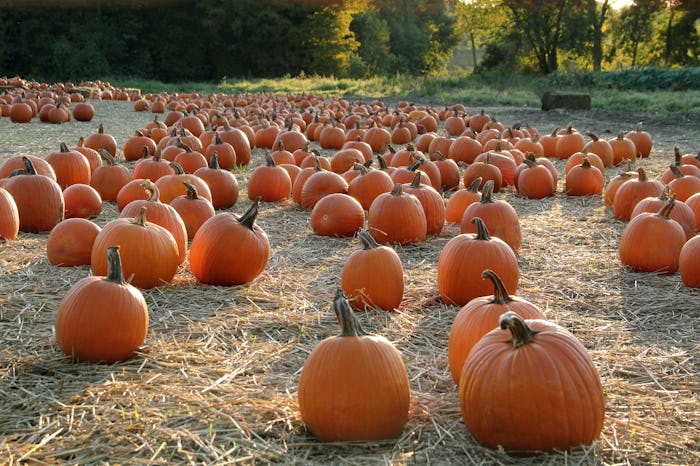Halloween

7 Religious Groups That Don't Celebrate Halloween & Why
Costumes and jack-o-lanterns are not for everyone.
Halloween is a secular holiday, like Valentine’s Day or Thanksgiving, meaning it’s not associated with any particular religion. This is why it’s not unusual for public schools to have Halloween parades or costume parties dedicated to the day (unlike Christmas or Hanukkah which often become “winter celebrations” to be inclusive to all). But Halloween does actually have roots in the Roman Catholic Church, and so it makes sense that certain religious groups don’t celebrate Halloween.
Halloween comes from an ancient Celtic festival known as Samhain (which is pronounced like ‘sow-in’), per History. The festival included bonfires and people in costumes to ward off ghosts. Later, All Saints Day, which falls on November 1 and adopted some of the rituals of Samhain, was instituted by the Catholic Church as a day to honor saints. By default, the day before, October 31, became All Hallows Eve, the day before All Saints Day. On the other side of All Saints Day is All Souls Day on November 2, commonly referred to as Día de los Muertos, which celebrates and honors loved ones who have passed.
All Hallows Eve may have roots in the church, but Halloween as we know and celebrate it today does not have religious connotations or traditions. Rather, it has evolved into a day known for costumes, trick-or-treating, and indulging in spooky things.
So if you see someone who isn’t dressed up for Halloween this year, maybe they didn’t feel like pulling a costume together, maybe they simply don’t care for the holiday, or perhaps they’re part of one of these religions that don’t celebrate Halloween.
Russian Christians
Halloween is not widely celebrated in Russia (in 2019 it was banned from some schools) so people of Russian descent living in America may skip the spooky celebrations too. While not all Russian people are Christian, many are Russian Orthodox (a sect of Christianity), and say Halloween goes against Christian values. In some regions, celebrating the holiday is banned by the government.
Jehovah’s Witness
Most people who are affiliated with Jehovah’s Witnesses don’t celebrate any holidays, including birthdays and Christmas, and of course, Halloween. Some Jehovah’s Witnesses think holidays are (or are closely related to) Pagan customs, per BBC.
Certain Orthodox Jews
Some Orthodox Jews will not observe or celebrate “Gentile” holidays. Halloween is usually considered secular (meaning not associated with a religion) though the holiday does have religious origins dating back thousands of years.
Muslims
In the Islamic religion, there are only two holidays celebrated each year: Eid al-Fitr and Eid al-Adha. Because there is no spiritual significance behind the day, and some Muslims consider it a Pagan holiday that teaches mischief rather than morals, per WNYC, most people of Islamic faith will skip the Halloween festivities.
Some Evangelical Christians
Certain Evangelical groups reject Halloween because they believe it’s a Pagan holiday associated with devil worship. Instead Evangelical Christians may celebrate Reformation Day (also Oct. 31) or have a fall festival without any of the classic Halloween elements, like costumes or scary decorations.
Some Hindus
Those who follow the Hindu religion already have a fall holiday, Diwali, a five day celebration of light. The exact dates change each year, but Diwali is a joyful celebration that brings people together to pray for good fortune and celebrate the triumph of good over evil. Some Hindus may also celebrate Halloween, though many are wary of glorifying ghosts so look forward to Diwali instead, which occasionally does fall on the same day as Halloween.
Some Mormons
The Mormon religion leaves it up to individuals to decide whether or not to celebrate the spooky holiday (though you probably won’t see Mormon children in scary costumes). If the holiday falls on a Sunday, however, most families will move to the festivities to another day like Friday or Saturday, as Mormons honor the Sabbath, and try to abstain from labor or other activities outside the home on Sundays (except for church).
Remember if your child’s friend or classmate doesn’t want to celebrate Halloween or wear a costume, it may mean that they are part of a religion that doesn’t celebrate Halloween. It’s always a good idea to have activities that are autumn-themed (but not specifically Halloween) like bobbing for apples or a fall leaf craft, so everyone has something to participate in.
This article was originally published on